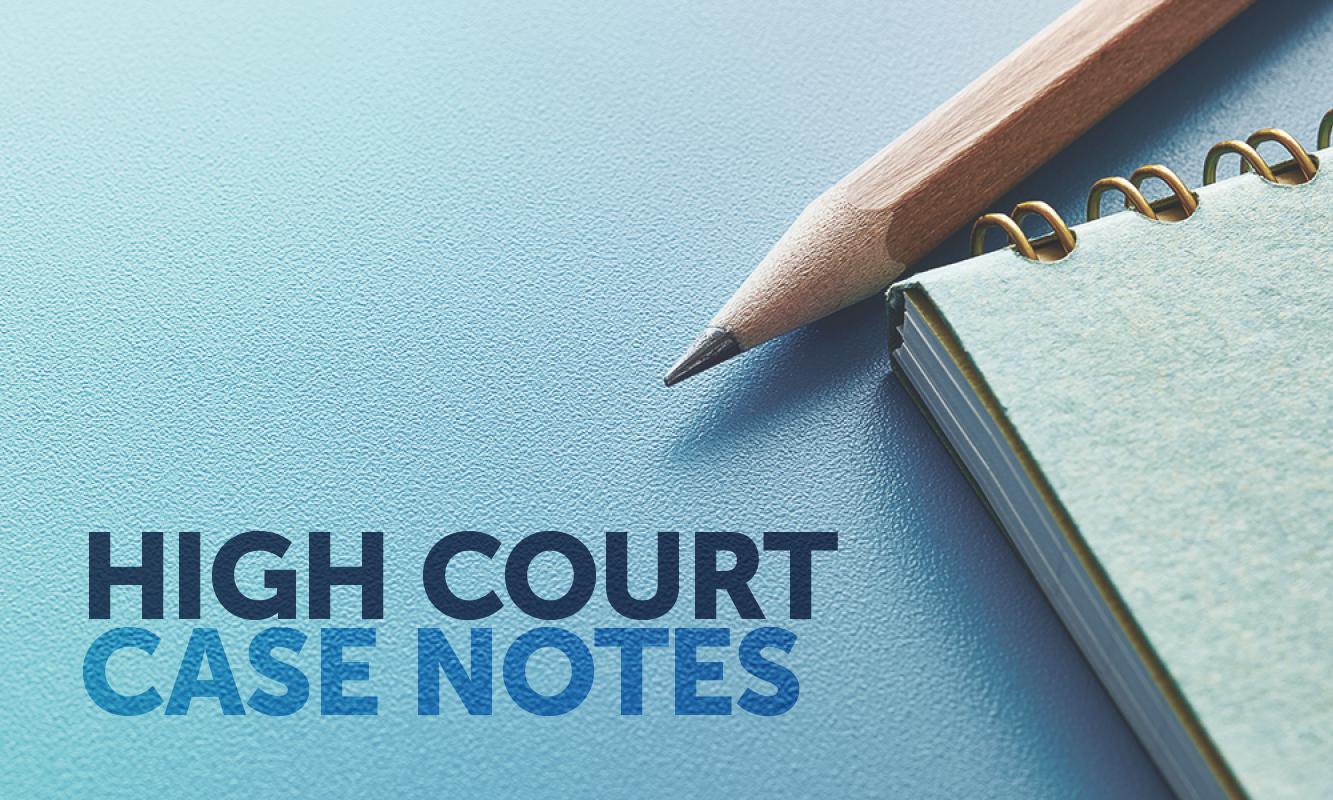In AB (a pseudonym) v Independent Broad-based Anti-corruption Commission [2024] HCA 10 (13 March 2024), the High Court was required to construe s162(3) of the Independent Broad-based Anti-corruption Commission Act 2011 (Vic) (IBAC Act) to determine what material the Independent Broad-based Anti-corruption Commission (IBAC) had to provide a person with, for their comment, before releasing a report which includes an adverse comment about that person.
The objects of the IBAC Act and the functions of IBAC include, among other things, the identification, investigation and exposure of corrupt conduct. The IBAC Act provides a broad definition of “corrupt conduct”. The definition extends to include conduct by a public officer that constitutes the dishonest performance of their functions where such conduct constitutes a “relevant offence”. A relevant offence includes any indictable offence committed against an Act.
IBAC may conduct a preliminary investigation in order to determine whether to dismiss, refer or investigate a complaint. IBAC’s powers of investigation, under the IBAC Act, include the compulsory examination of witnesses and production of documents or other things to IBAC. Compulsory examinations are typically conducted in private.
IBAC also has the power to issue confidentiality notices during an investigation in relation to “restricted matters”, the disclosure of which IBAC considers, on reasonable grounds, would likely prejudice its investigation, the safety or reputation of a person or the fair trial of a person charged with a criminal offence.
On the conclusion of its investigation IBAC may, among other things, cause a special report to be transmitted to each House of Parliament pursuant to s162(1) of the IBAC Act. Relevantly, s162(3) of the IBAC Act provides: “If the IBAC intends to include in a report under this section a comment or opinion which is adverse to any person, the IBAC must first provide the person a reasonable opportunity to respond to the adverse material and fairly set out each element of the response in its report”.
Between 2019 and 2021, IBAC conducted an investigation into allegations of unauthorised access to, and disclosure of, internal email accounts of a “public body” within the meaning of s6(1) of the IBAC Act.
The first appellant, AB, is an employee of the public body and was examined by IBAC during its investigation of the allegations. In December 2021, IBAC provided AB with a redacted version of its draft special report for AB’s response by a particular date. The draft report contained proposed findings adverse to AB and others. AB, through his solicitor, sought a transcript of his examination, and others, referred to in the draft report, as well as copies of the documentary material relied on in support of the proposed adverse findings. IBAC declined AB’s request. AB then commenced proceedings in the Supreme Court of Victoria seeking declaratory relief to the effect that IBAC had failed to comply with s162(3) of the IBAC Act. AB also sought an order to effectively restrain IBAC from transmitting the draft report to each House of Parliament.
AB failed at first instance. The primary judge, Ginnane J, construed the reference to “adverse material” in s162(3) as meaning the material on which IBAC relied in support of the proposed adverse findings. But Ginnane J found that it was sufficient if IBAC provided the substance or gravamen of the material. Ginnane J went on to find that IBAC, by providing AB with the draft report, had provided AB with the substance or gravamen of the material relied on in support of the proposed adverse findings. AB sought leave to appeal to the Court of Appeal but was refused.
The Court of Appeal, instead, upheld a notice of contention filed by IBAC to the effect that Ginnane J erred in his constrution of “adverse material”. The Court of Appeal held that “adverse material” in s162(2) referred to an adverse comment or opinion and not the material on which the adverse comment or opinion was based. The Court of Appeal also held that the draft report set out the adverse comment or opinion and, as such, IBAC, in providing AB with a copy of the draft report, had complied with s162(3).
AB applied for special leave to the High Court. AB contended that the Court of Appeal erred both in its construction of s162(3) and its finding that IBAC had complied with s162(3). The High Court unanimously allowed AB’s appeal and set out the reasons for its decision in a single joint judgment. The High Court (at [21]) observed that the interpretation of s162(3) must begin with a consideration of the text of the IBAC Act as a whole.
Their Honours went on to observe that “ascertaining the meaning of the text requires a consideration of its context, which includes the general purpose and policy of a provision and, in particular, the mischief it is seeking to remedy”. Their Honours also considered (at [25]) that it was important to identify some basic propositions about the applicable common law principles of natural justice. Their Honours identified two relevant common law principles.
First, a person must be given an opportunity to deal with relevant matters adverse to their interests that a decision-maker proposes to take into account in exercising its powers. Second, a person whose interests are likely to be affected does not have to be given an opportunity to comment on every adverse piece of information, rather only information that is credible, relevant and significant to the decision being made.
Their Honours noted (at [26]) that the nature of a decision-maker’s powers and their capacity to affect a person’s rights and interests informs both the content of any duty of procedural fairness and “the proper construction of statutory provisions that create analogous rights and obligations”.
Against this background, their Honours concluded (at [27]) that s162(3) of the IBAC Act modifies the common law obligation to afford procedural fairness so as to require a connection between “adverse material” and the proposed adverse comments or opinions.
It follows that for IBAC to discharge its obligations under s162(3), IBAC must provide the person affected with the opportunity to respond to the material collected by IBAC which IBAC contends justifies the adverse comments or opinions. Their Honours (at [31]) considered that IBAC’s argument that a confidentiality notice may not allow for the provision of such material “loses force” once it is accepted that s162(3) does not require IBAC to provide copies of that material. That is, s162(3) is satisfied if IBAC provides the affected person with a reasonable opportunity to respond to the “gravamen or substance” of the adverse material.








Share this article